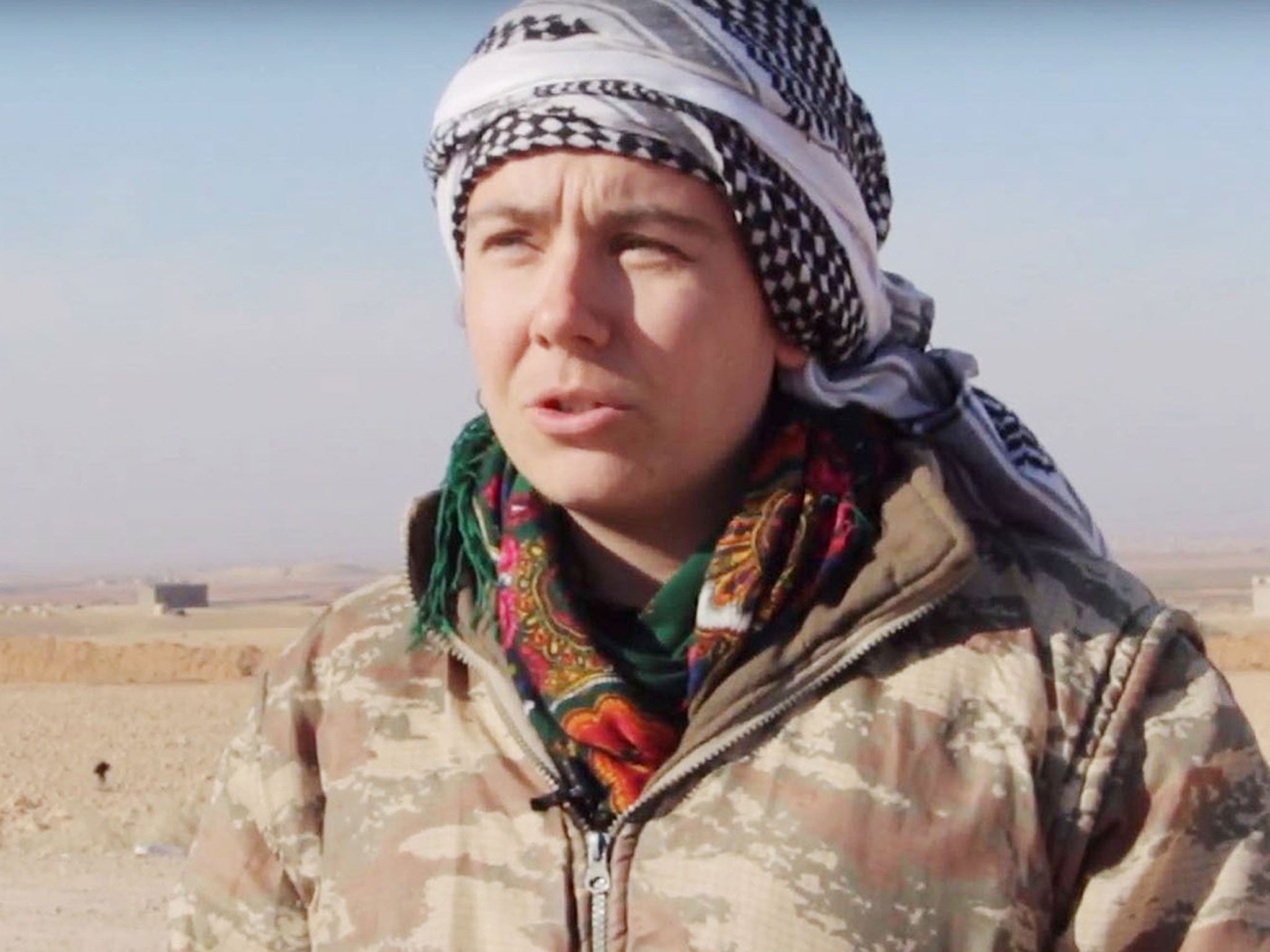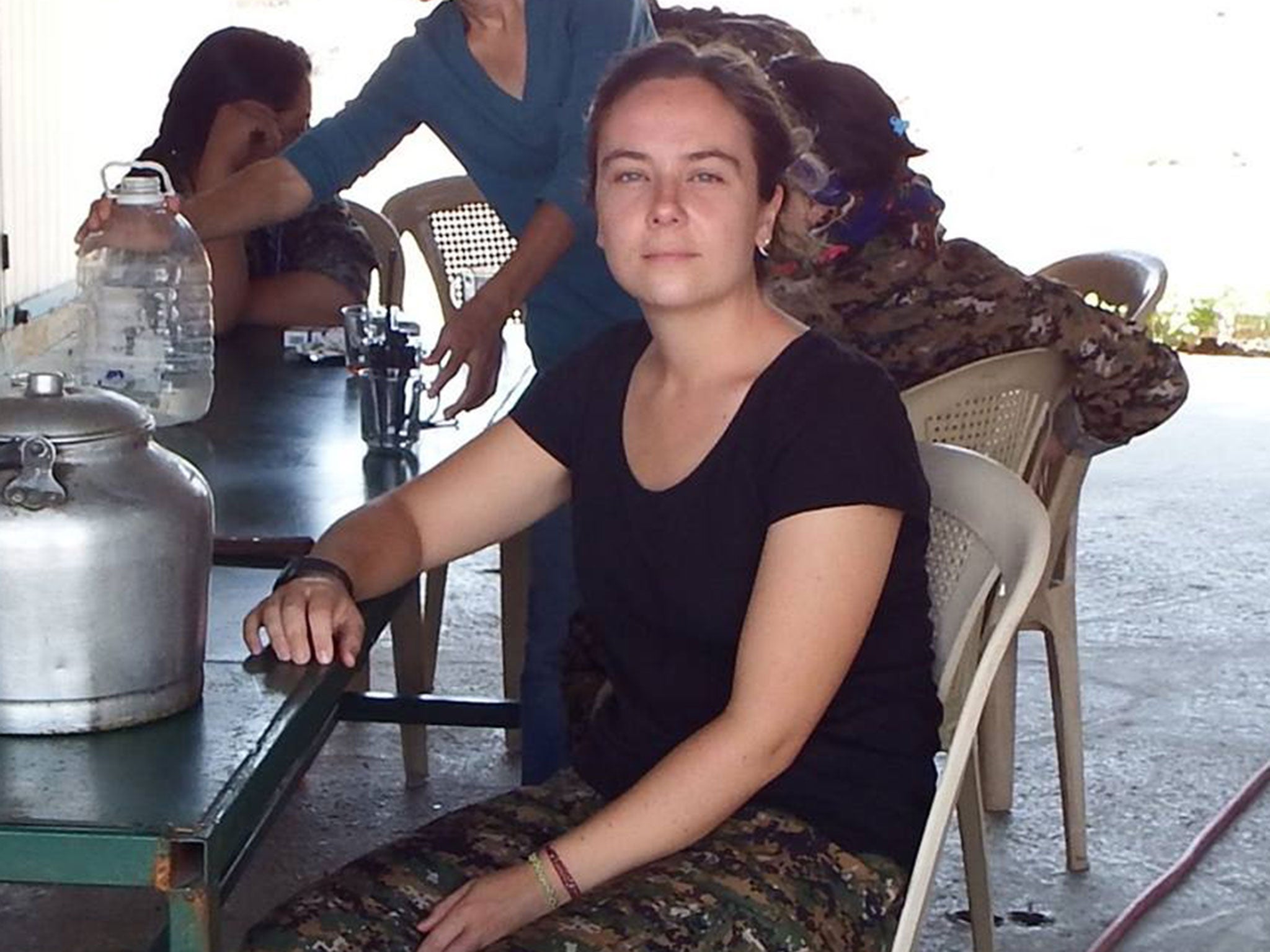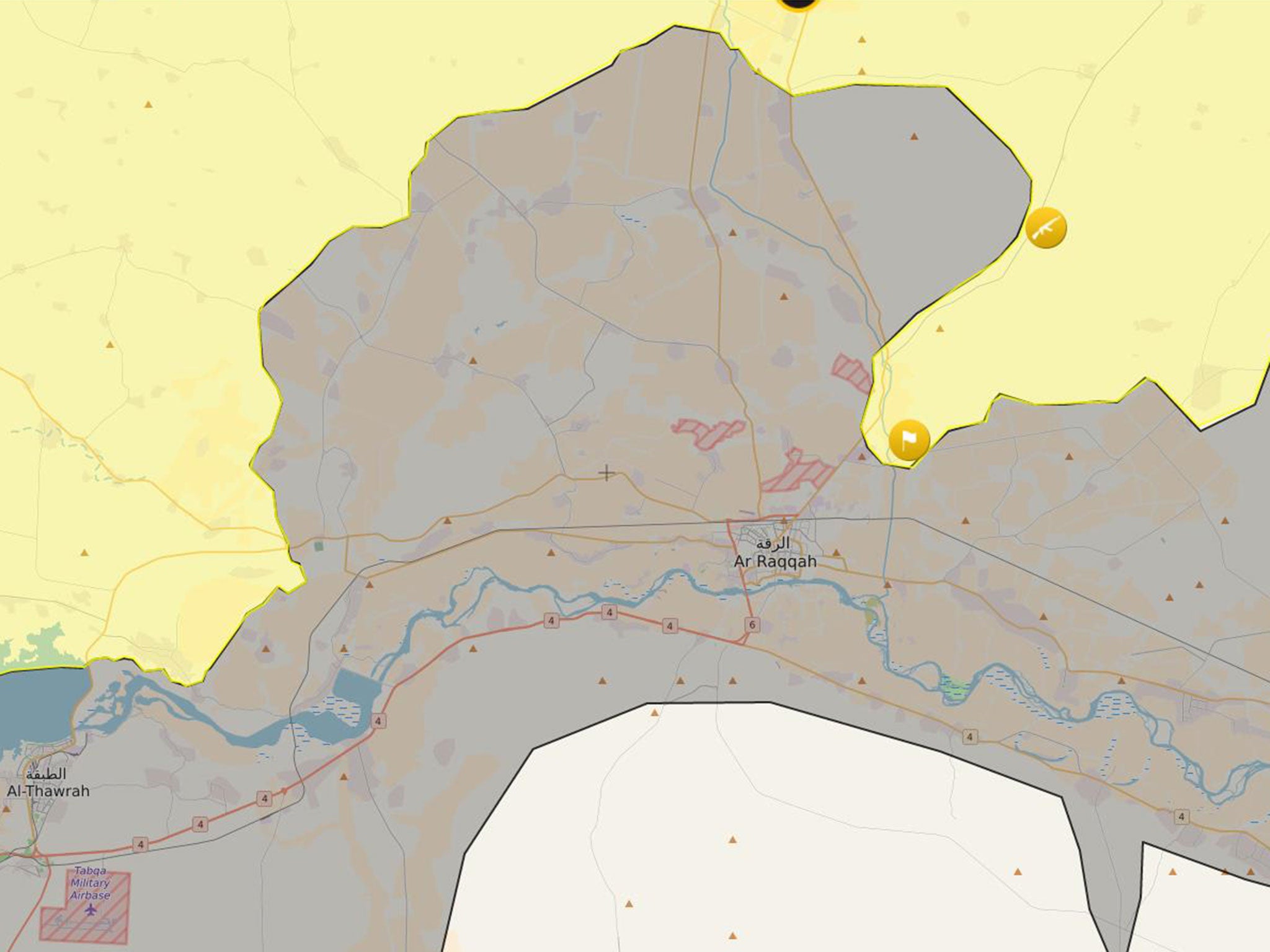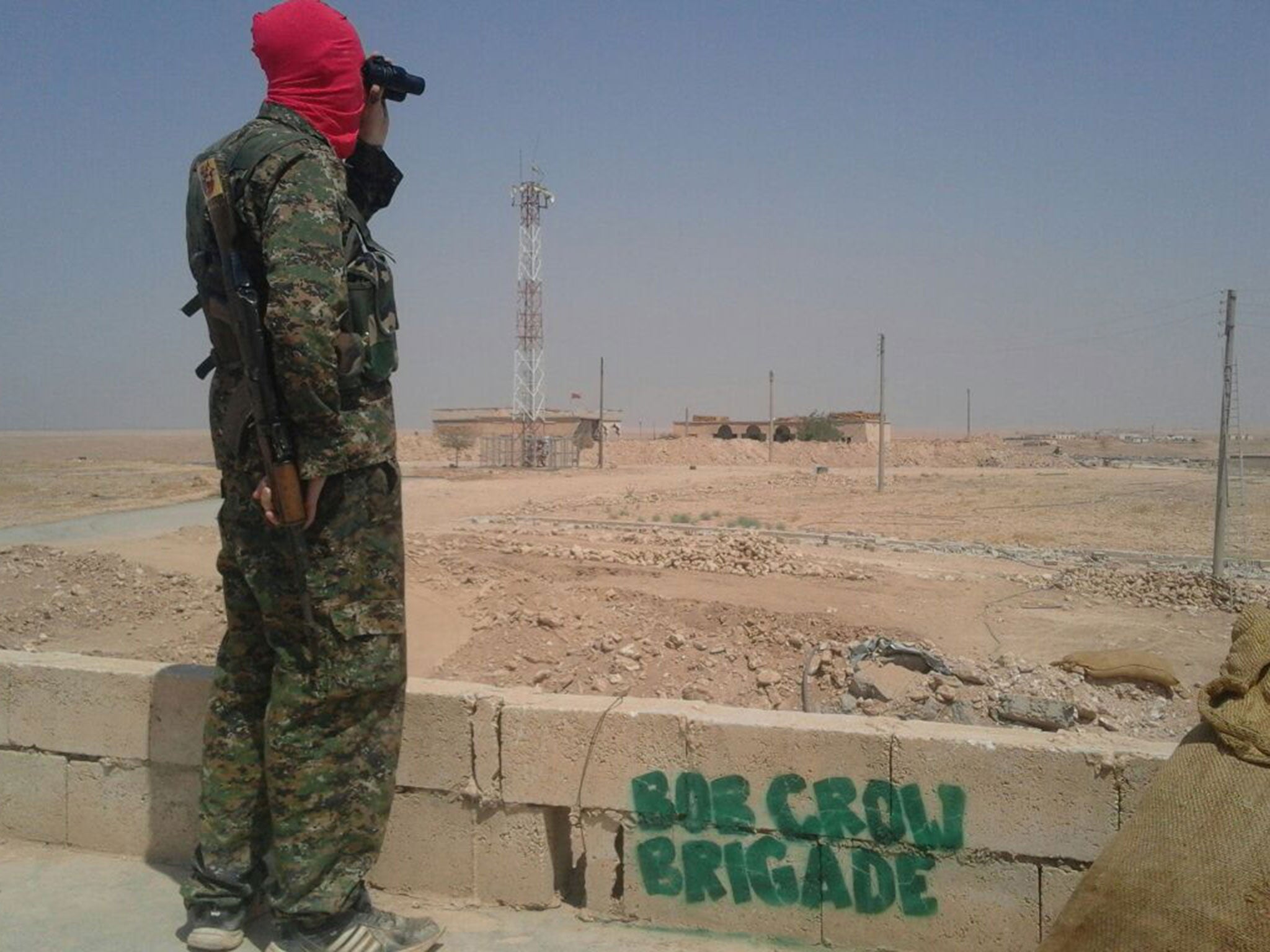Former student from Blackburn becomes first British woman to fight Isis in Syria
Kimberley Taylor, 27, says she is battling for a socialist and feminist ‘revolution’

Your support helps us to tell the story
From reproductive rights to climate change to Big Tech, The Independent is on the ground when the story is developing. Whether it's investigating the financials of Elon Musk's pro-Trump PAC or producing our latest documentary, 'The A Word', which shines a light on the American women fighting for reproductive rights, we know how important it is to parse out the facts from the messaging.
At such a critical moment in US history, we need reporters on the ground. Your donation allows us to keep sending journalists to speak to both sides of the story.
The Independent is trusted by Americans across the entire political spectrum. And unlike many other quality news outlets, we choose not to lock Americans out of our reporting and analysis with paywalls. We believe quality journalism should be available to everyone, paid for by those who can afford it.
Your support makes all the difference.A former student from Blackburn is believed to have become the first British woman to fight Isis alongside Kurdish forces in Syria.
Kimberley Taylor, 27, is currently embedded with the Women’s Protection Units (YPJ) in northern Syria, where the group is being supported by international air strikes to drive jihadis out of territory surrounding their de-facto capital in Raqqa.
Also known by her adopted Kurdish name Zilan Dilmar, she is working for the YPJ’s media team to record and broadcast their operations, but also fights to defend the group’s camps from frequent attacks.

The latest was on Friday morning, when Isis militants struck at 4am in a “super gory” assault.
“We put up an incredible fight for three hours,” Ms Taylor said in a message posted on Facebook.
“Just two friends slightly injured. I’m so proud to call these people my comrades. We fight with unconditional resistance.”
She said four People’s Protection Units (YPG) fighters were killed in another attack on a nearby base, and two others on the front line, while Isis used its propaganda outlets to claim it killed at least 40 Kurdish fighters in Raqqa province.
The groups are Isis’ main rivals in the region, where their military success has attracted air cover and support from the US-led coalition.

The Turkish government classifies the YPG and YPJ as “terrorist” groups because of their links to violent separatist groups in Turkey but Ms Taylor says she is fighting to “liberate” Syrians from Isis control and bring a “social and political revolution”.
Her frequent social media updates show her wearing combat gear and traditional Kurdish scarves, surrounded by female fighters as they push back Isis despite waves of car bombings, battles and counter-attacks.
Videos show vans and cars packed with civilians waving as they move away from frontlines and triumphant dances and parades from soldiers in the Syrian Democratic Forces alliance.
Images showing large mines and devastation caused by rockets, artillery and gun battles hint at the danger of her position.
Having grown up in Darwen, near Blackburn, and moved to Merseyside as a teenager, she studied maths at Liverpool University and then business and politics in Stockholm, although her mother said neither course was completed.
Ms Taylor started to travel extensively, volunteering in countries including Greece, Turkey and Iraq as the refugee crisis intensified, and writing for a Swedish socialist newspaper.
In a Facebook post announcing her decision to join the YPG in September, she said meeting families fleeing the Syrian civil war in Athens in 2013 had started her journey to the cause as she heard about the murder and abuses perpetrated by Isis.
The activist described how she started questioning the nature of “success” in European society, writing: “I, personally, have searched for years for answers to this question. I have tried and tried to do my part, but been constantly hindered by the systems of domination – capitalism, liberalism, patriarchy, statism. There is no way out under these systems.”
After visiting the de-facto Kurdish region of Rojava, in northern Syria, to report on female anti-Isis fighters in March last year she decided to join their ranks herself.
“After three days, I was sure I had found my place in the world, and decided to leave my life behind in Europe and stay,” Ms Taylor said, describing the ongoing war as an “unending struggle between the systems of religious extremism and capitalist imperialism”.
In an open message to her family friends, she urged them to understand her reasoning.
“What I am doing is not from naivety, but from true knowledge built through life experience and that this is exactly in line with who I am, someone that wants to dedicate their life to creating a world in which we are all free,” she added.
The British Government does not take such a positive view, warning that anyone travelling to fight in Iraq and Syria – for whatever side – can be prosecuted upon their return.
“Anyone who does travel to these areas, for whatever reason, is putting themselves in considerable danger,” a spokesperson for the Home Office said.

“Those who travel abroad in order to participate in conflicts may be committing criminal or terrorism offences and could face prosecution when they return to the UK.
“There are many crimes committed abroad – including murder – which courts in the UK can prosecute.”
The Foreign Office has also advised against all travel to Syria, where all British consular services are suspended, making government aid impossible.
Ms Taylor has voiced her anger over the arrest of fellow anti-Isis fighters, including 24-year-old Joshua Molloy, an Irish YPG fighter temporarily detained by Iraqi authorities last year.
Other British fighters, Ryan Lock and Dean Carl Evans, have died in battle after volunteering with the YPG.
Dozens of volunteers from the UK are thought to be fighting Isis in Syria, including a group calling themselves the Bob Crow Brigade, who told The Independent they are battling to “defend the first revolution of the 21st century”.
They number a small fraction of at least 800 British citizens who have joined Isis in Syria, with 600 others caught attempting to enter the country.
The Government believes around 400 British jihadis remain in the country, with the rest either having left or been killed, including in drone operations targeting high-profile members.
Join our commenting forum
Join thought-provoking conversations, follow other Independent readers and see their replies
Comments